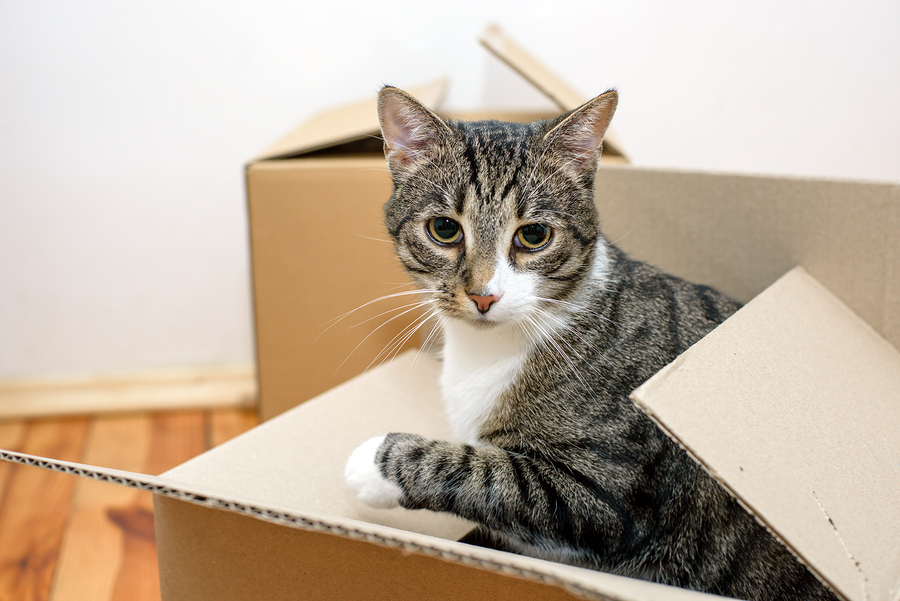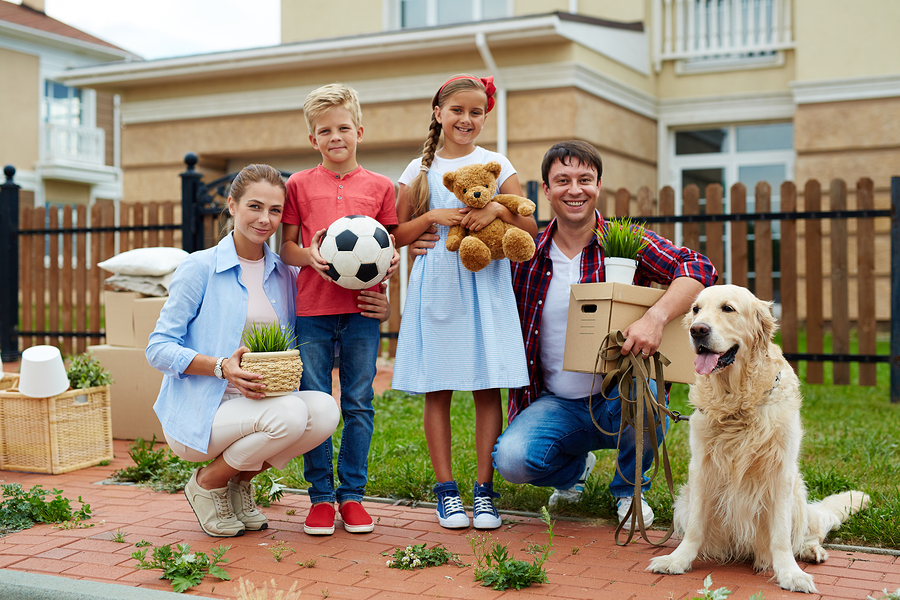
Disrupting routines can cause stress and pressure. This is especially true when you’re an animal, or a small child who doesn’t understand why life is changing. Feeling scared can be a recipe for disaster, whether you’re talking about kids or furry friends. That’s why big moves can often cause major behavioral changes for pets or kids who are trying to cope with all that’s happening around them.
If you’re planning a move soon, why not take time to prepare for how the transition will impact the smallest members of your household? By planning proactively for moving stress, you may be able to alleviate burdens from the ones who depend on you most.

Practice Traveling. One key preparation tactic is practice. Instead of shocking your pets or kids with their first road trip — if you’re moving a long distance — take a few smaller trips in the weeks leading up to your move. Get your dog used to sleeping in the car. Teach your cat that it’ll be OK to be cooped up for a while.
Get a Pet Checkup. Pre-move is a great time to take your pet(s) to the veterinarian. Get a checkup, and use the visit as a chance to ask about moving tips. The vet may even recommend anxiety medication to help pets with the move.
Ask for Help. Moving takes a lot of energy and attention, so your pets and kids may miss you. When they miss you, they may act out. Avoid this problem by enlisting support from others. Get a sitter to stay/play with your dog, or ask someone to watch your kids while you’re in the process of moving.
Settle In. As soon as your move is complete, try to return to your normal routine. If you always take your pet for a walk before dinner, start doing that again. If you always had food in a certain place of your old home, try to establish a similar spot in the new one.

To learn more about tips for moving with small kids or pets, check out the infographic created by University Moving and Storage below.










